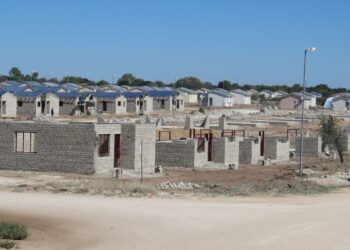
The Construction Industries Federation of Namibia (CIF) is concerned that the absence of a statutory regulatory body results in unfair awarding of tenders to contractors who lack the necessary experience and thus are unable to complete the projects.
“With the lack of a regulatory body in the construction sector, such as a construction council, there is not a single statutory body that has the mandate to monitor and police the performance of contractors in this sector.
With the absence of such a body, buyers of building and construction services – mostly government authorities, are not in the position to accurately evaluate tenders before their respective awards,” said CIF Chief Executive Officer Bärbel Kirchner.
Based on her observations, she noted that tenders are often awarded to Namibian “so-called tenderpreneurs”, who subcontract to other contractors, many of whom are foreign companies.
The organisation points out that this is a result of there not being a statutory regulatory body, such as a construction council in place.
Additionally, it highlights related disadvantages as well as recommends that, in the interim, buyers only appoint contractors that are CIF members since they have to adhere to the federation’s Code of Conduct.
“If a contractor has not completed a project or has delivered below-par work and, consequently, has been barred from doing further work for a specific authority, they often open up and operate under a different business name,” said Kirchner.
The CEO contended that many business owners create more than one, often up to three companies, only for tendering purposes.
“The occurrence of nepotism and potentially fraud is much more probable in an unregulated environment,” she said.
“Without an appropriate regulatory body in the construction sector, the scope for fraudulent and corrupt practices is much bigger, which can lead to a very inefficient public procurement system. The CIF wants to encourage buyers of building and construction services to be extremely careful and prudent when selecting service providers and awarding contracts accordingly,†she noted.
Kirchner said that repeatedly since 2006, the CIF has lobbied the government so that a Construction Council would be established.
Kirchner says: “We really cannot understand why, after 17 years of lobbying our government, there is still no council.”
The federation was very hopeful that after the pledge was made by the government at the Namibian Investment Summit in 2019, the bill would have been tabled in Parliament and eventually promulgated by the end of the financial year, i.e., 28 February 2020.
Kirchner says that as a stakeholder in the construction sector, the federation wants to see the sector optimally regulated.
She says this is in the interest of the development of the country, the development of the sector, and ultimately, will help to better utilise scarce financial resources.
“However, in the absence of that, we want to call everyone that is buying or funding building and construction services to establish first whether the service provider is a member of the CIF.”
Meanwhile, with a construction council in place, all businesses operating in this sector will have to be registered with the council, according to the CIF CEO.
Essentially, “the criteria will be determined by the council itself. Based on this, companies would be categorised, and projects could be sized so as to also meet the developmental needs of businesses in the sector.”
She says the formulation of a council will reduce the wasteful use of government resources and ultimately taxpayers’ monies, “as unqualified businesses are getting contracts.”
Â
Â
Â
Â
Â
Â
Â
Â
Â










